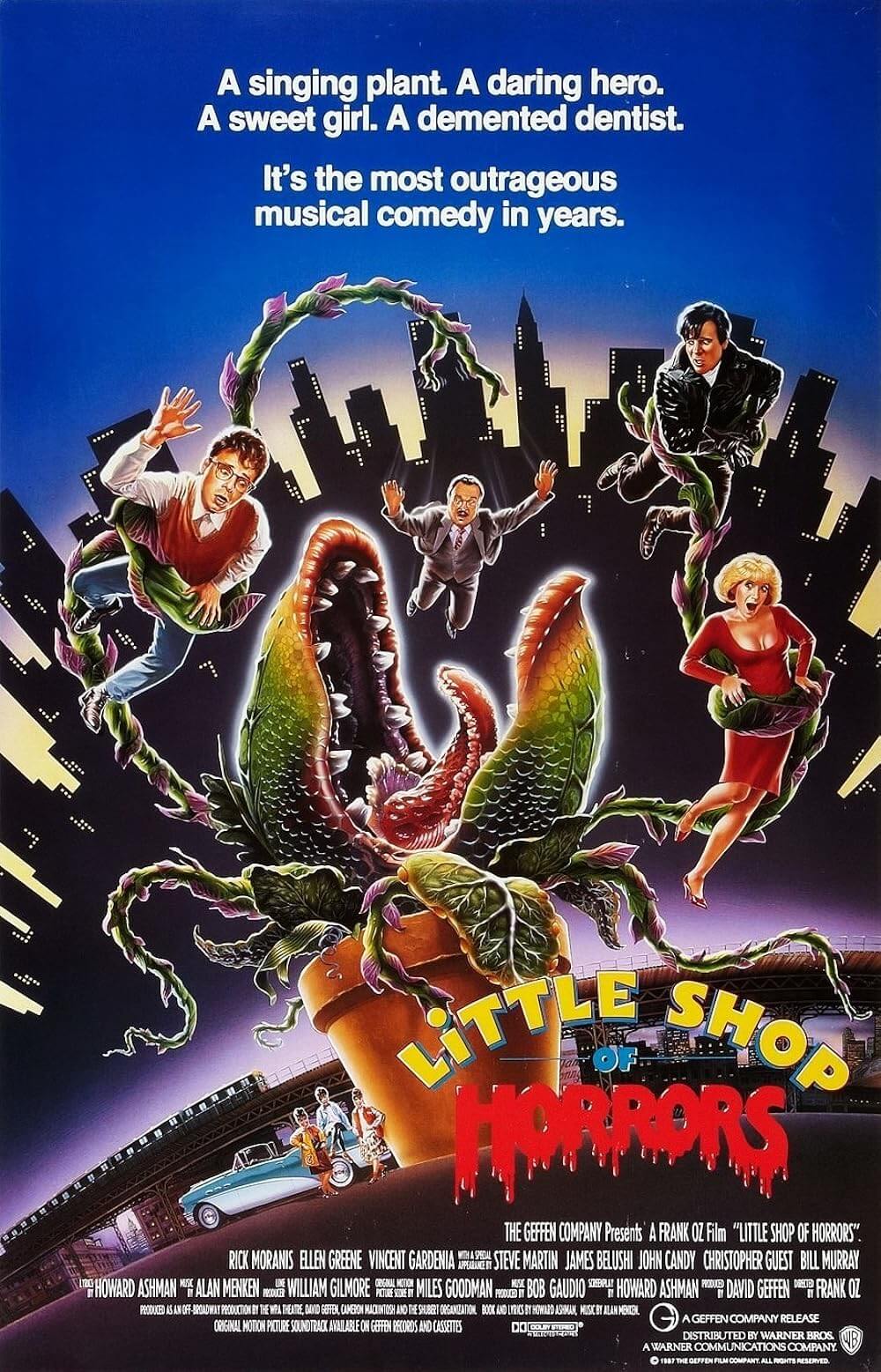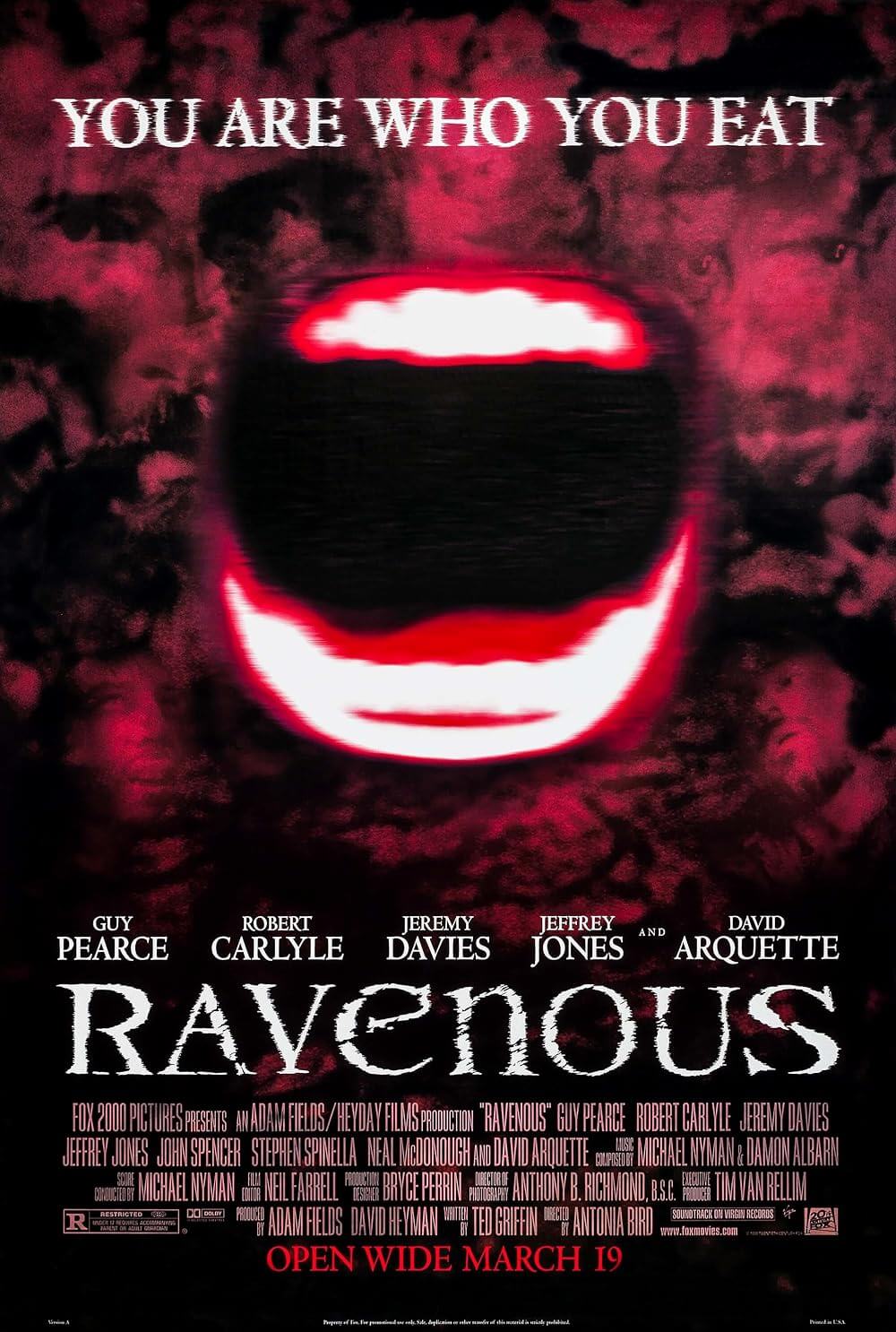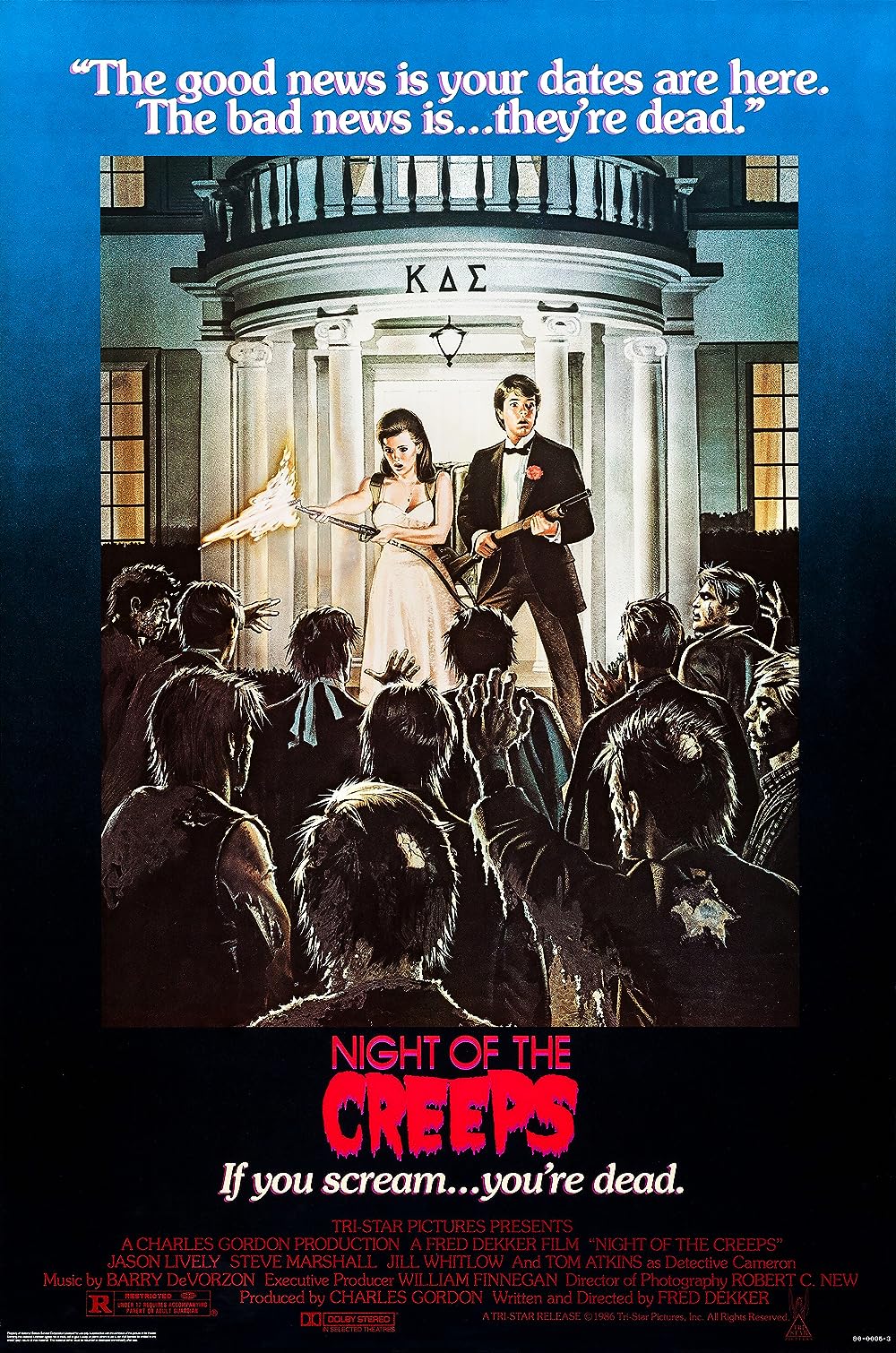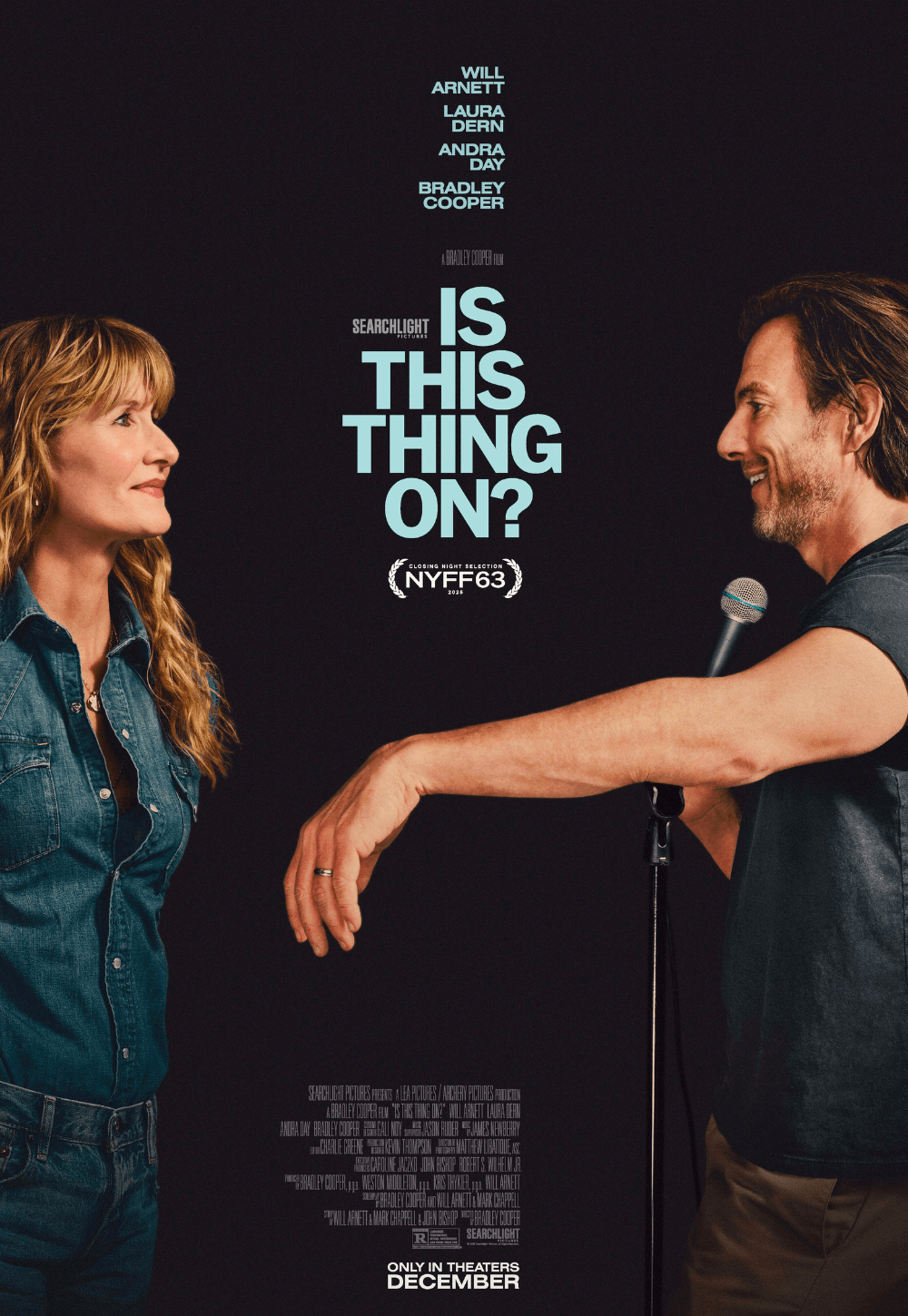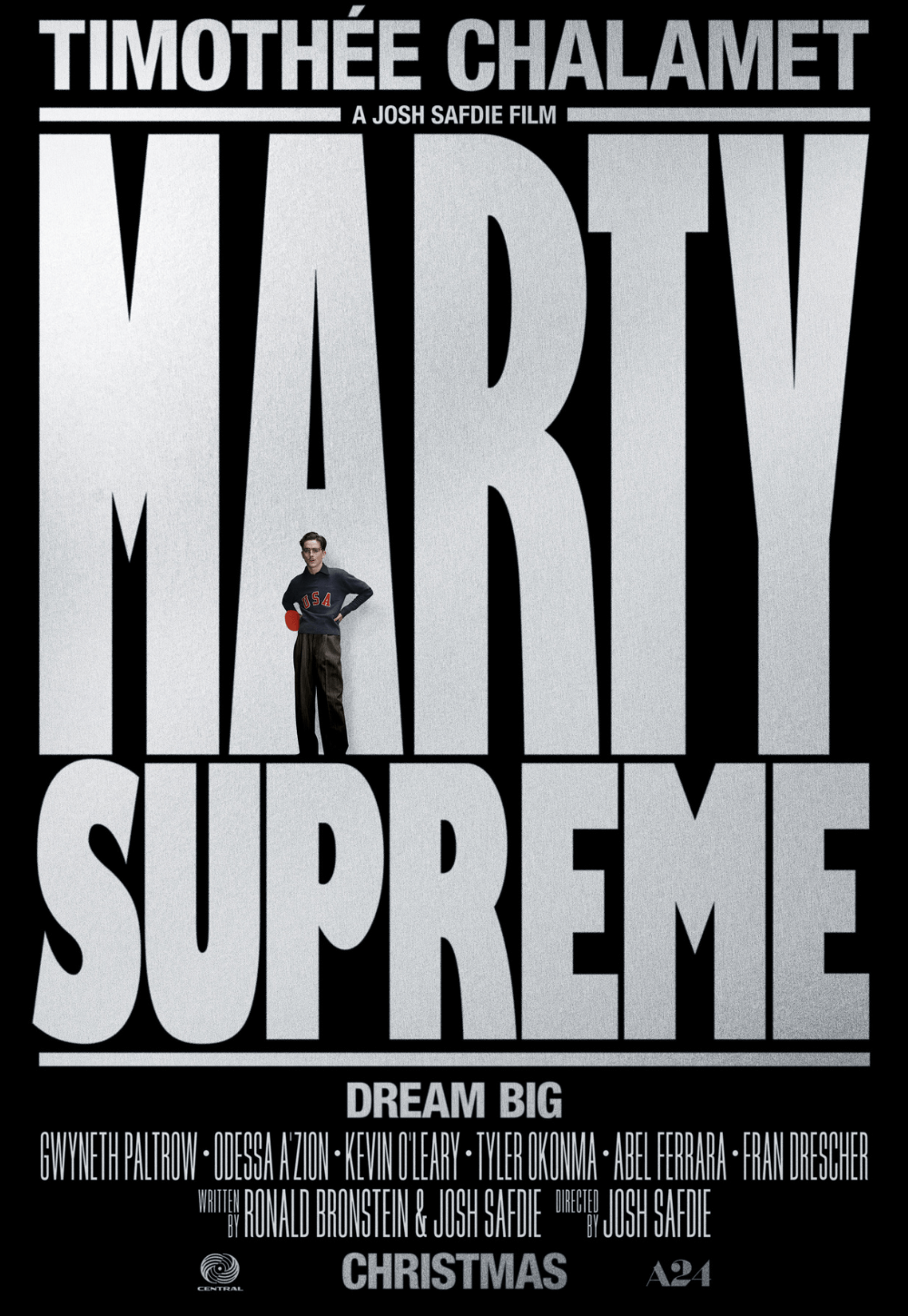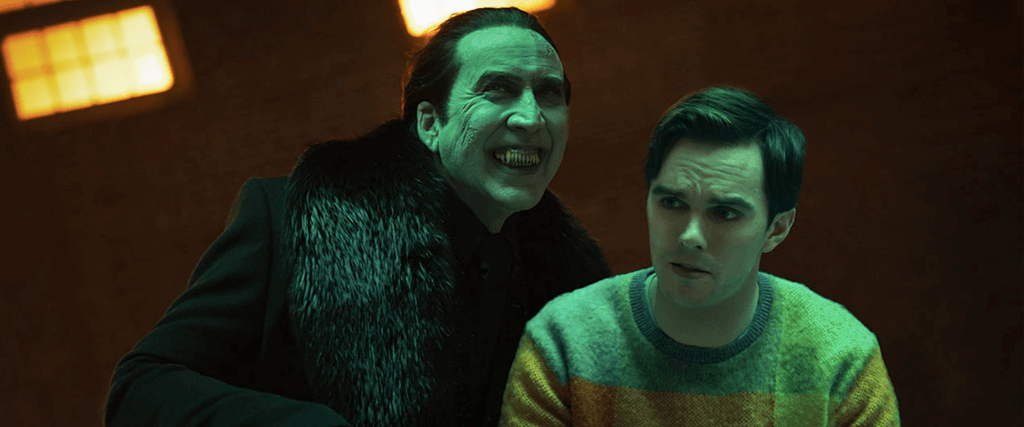
Renfield
By Brian Eggert |
Sitting down to write a review of Renfield, it’s challenging to avoid “suck” puns, given its vampiric nature. Other critics might amuse themselves by weaving “This movie sucks” or similar variations into their reviews. But I will try my best to avoid such shenanigans. Instead, I might say that the movie has been exsanguinated of life by filmmakers trying to cram too much into one movie. Or I could write that its comedic approach to Dracula drained the character of any scares. Yet, I won’t write “suck” because Nicolas Cage gives a genuinely inspired performance as Bram Stoker’s ghoulish creation—what must’ve been a dream-come-true role for the eccentric, showy actor. However, half of Renfield feels like an uninspired knock-off of What We Do in the Shadows, both Taika Waititi’s 2014 mockumentary and the excellent FX series. The other half is a gory shoot-em-up between the New Orleans cops and a local crime family. Smashed between them is a commentary on codependent relationships. Unfortunately, it attempts to be all of those things and does none of them well. “Sucks” would be too strong a word, but “uneven” and “misguided” might do.
Nicholas Hoult stars as the long-suffering Renfield, Dracula’s manservant for the last century, who has been charged with collecting victims for the becaped Transylvanian. Following his role in Warm Bodies (2013) as a zombie heartthrob, Hoult plays another misunderstood monster. Whether he’s undead as a brain-eater or vampire’s familiar, both of his characters have pale skin, dark circles under their eyes, and inner dialogues that occasionally, and inelegantly, shift into expositional voiceovers for the audience’s benefit. In the opening scenes, Renfield attends a group therapy session for people in codependent relationships with narcissists. As others in the group complain about their partners and employers, Renfield realizes that his life of chloroforming innocents for Dracula’s next meal isn’t worth the manipulation and abuse, despite the perks: Dracula keeps Renfield alive and youthful with his blood—a healing elixir that renders his slave immortal. Also, when Renfield feeds on insects or arachnids, he receives a boost of super strength and agility, though where he learned his fighting moves remains a mystery.
That last skill comes in handy when Renfield encounters drug dealers while trying to gather food for his master. All at once, the movie transforms from a blood-splattered comedy to an action extravaganza, complete with Renfield making short work of the opposition, rendered with elaborate martial arts choreography and dismembered body parts spraying CGI viscera. We’ve been down this road before with adaptations of author Seth Grahame-Smith’s genre mashups, Abraham Lincoln: Vampire Hunter (2012) and Pride and Prejudice and Zombies (2016), and it didn’t turn out well then either. Except, in Renfield, director Chris McKay (The Tomorrow War, 2021) also distracts from the grisly proceedings with a side story about Rebecca Quincy (Awkwafina, who generally makes everything better), the sole incorruptible cop in New Orleans who plans to single-handedly take on the Lobos, a crime family run by Ella Lobo (Shohreh Aghdashloo) and her ineffectual son Teddy (Ben Schwartz). When Renfield sees Quincy’s willingness to stand up to criminals, he’s inspired to do the same to the Dark One. But as he allies with Quincy, a resentful Dracula teams with the Lobos.
 To whatever degree the plot is an unfocused hodgepodge, Cage’s performance might be worth the price of admission. It harkens back to the actor’s oddball turn in Vampire’s Kiss (1988), playing a yuppie convinced he’s a creature of the night. Drawing from his affinity for theatricality and German expressionism, Cage’s performance is suited for silent-era cinema. Every gesture is deliciously exaggerated, every countenance wonderfully cartoonish in the most Cage-centric and outrageous way. Best of all, McKay even recreates scenes from Dracula (1931), complete with Cage replicating famous Bela Lugosi moments and Hoult doing a worthwhile version of Dwight Frye’s Renfield. In an alternate universe—one preferable to this realm—Renfield would have been composed entirely of black-and-white photography and taken place after the events of Todd Browning’s original. Or perhaps it could have been something like Shadow of the Vampire (2000). Alas, we’re stuck with a genre-spliced mess, where, for every deliriously entertaining scene with Cage putting all of his Cage-ness into his tiny-toothed bloodsucker performance, there are at least three more scenes detailing a tedious crime actioner.
To whatever degree the plot is an unfocused hodgepodge, Cage’s performance might be worth the price of admission. It harkens back to the actor’s oddball turn in Vampire’s Kiss (1988), playing a yuppie convinced he’s a creature of the night. Drawing from his affinity for theatricality and German expressionism, Cage’s performance is suited for silent-era cinema. Every gesture is deliciously exaggerated, every countenance wonderfully cartoonish in the most Cage-centric and outrageous way. Best of all, McKay even recreates scenes from Dracula (1931), complete with Cage replicating famous Bela Lugosi moments and Hoult doing a worthwhile version of Dwight Frye’s Renfield. In an alternate universe—one preferable to this realm—Renfield would have been composed entirely of black-and-white photography and taken place after the events of Todd Browning’s original. Or perhaps it could have been something like Shadow of the Vampire (2000). Alas, we’re stuck with a genre-spliced mess, where, for every deliriously entertaining scene with Cage putting all of his Cage-ness into his tiny-toothed bloodsucker performance, there are at least three more scenes detailing a tedious crime actioner.
The Walking Dead co-creator Robert Kirkman receives producer and “story by” credit here, while Rick and Morty writer Ryan Ridley penned the script. Putting Dracula into a cop movie might sound like a swell 20-minute adventure for Rick Sanchez and Morty Smith, but it strained my patience at even the brief 93-minute runtime. Worse, the script is bogged down with tiresome jokes, including a running gag about ska music and the braggadocious performance by Schwartz, both of which are funny at first but get worn down to a nub. Still, there are enough worthwhile moments along the way to sustain our interest. For instance, Cage has the chance to work under some impressive prosthetic make-up effects, since Dracula receives a dose of sunlight early in the movie, reducing him to an abject mass of fleshy gore reminiscent of Liam Neeson in Darkman (1990). And Dracula’s amusingly evil lines about the “pathetic desperation of humanity” and commitment to world domination, turning humanity into either “followers or food,” force us to wonder why we’re watching another protracted action sequence when we could be watching Cage make the most of every scene.
Is it scary? Not really, but cinematographer Mitchell Amundsen creates spooky putrid-green lighting, and production designer Alec Hammond crafts memorably macabre sets. Is it exciting? Sure, at times; though, the action is sometimes incoherently edited. Is it funny? It has its moments, but the titular character is less compelling than Dracula and Quincy. Does it feel cohesive? Not in the least. Although diverting, the underdeveloped relationship between Renfield and Dracula proves one-note, reliant on Renfield to supply his master with fresh victims. There are no other dynamics in their relationship (sex, friendship, trust, etc.) to give them depth. The half-hearted commentary about codependent relationships feels like an afterthought next to the crime story, leaving the whole picture to feel bisected between the cops-and-crooks scenario and the horror-comedy touches. Neither the direction nor the script mixes the varying genres with confidence or finesse, leaving Renfield to be unsatisfying as a whole and downright disappointing for wasting a terrific Cage performance on a lackluster movie.
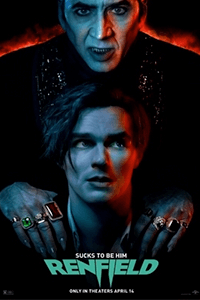
Thank You for Supporting Independent Film Criticism
If the work on DFR has added something meaningful to your love of movies, please consider supporting it.
Here are a few ways to show your support: make a one-time donation, join DFR’s Patreon for access to exclusive writing, or show your support in other ways.
Your contribution helps keep this site running independently. However you choose to support the site, please know that it’s appreciated.
Thank you for reading, and for making this work possible.
Brian Eggert | Critic, Founder
Deep Focus Review


